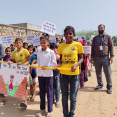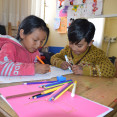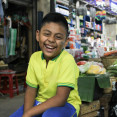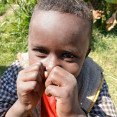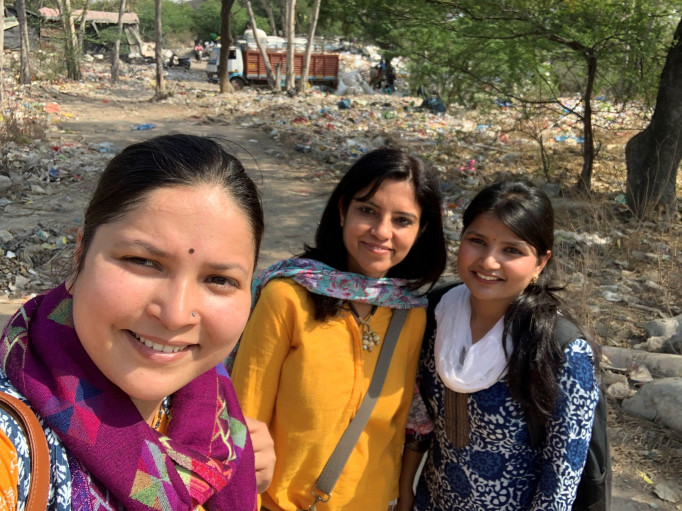
Smita Khanijow (above, centre) is Toybox's Programme Manager for Africa and Asia. Here she shares some insights and reflections from a recent trip to India where she visited Toybox-supported education projects.
Diversity masks inequalities
"India’s diversity often masks its inequalities. In the fastest-growing economy in the world, its top 10% population holds 77% of the total national wealth. On one hand, the parliament report reads that 770,000 Indian students went abroad to study in 2022 and on the other hand it also reports that there were 1,253,019 students across the country were out of school in the same year. As India continues to be the largest democracy in the world, its position on the Global Hunger Index is in the bottom 8 (standing at 107 positions out of 121 countries). In my recent visit to India, I felt that it is this contrast between facts and figures which often gets lost in the din of media portrayal of the country. I was in India to visit Toybox-supported projects focused on education for street-connected children alongside our local partner CHETNA.
There are no clear estimates as to how many children in India are connected to the streets (as in spending most of their time living on the streets). Despite national legislation protecting the Right to Education of under 14 year olds, many children from poor and marginalised communities end up living on the streets and working in the informal sector (such as rag picking, domestic work, supporting local restaurants, and selling balloons and toys at traffic lights). CHETNA works with street-connected children in India across many states and Toybox currently supports projects in Jaipur and Delhi.
The impact of labour migration on children
Both Jaipur and Delhi are capital cities and therefore attract migrant labour from different parts of the country. Some people migrate with families and often it’s the children who face the brunt of this movement as they drop out of school. At times, the complex city infrastructure and lack of awareness make it daunting for parents to get their children back into school. Some children run away from home or are abandoned by their parents or guardians and end up spending thier lives on the streets.
These children lack valid identity documents such as Aadhar cards (a biometric residence permit for people residing in India) which can help them access government services including admission to schools, scholarships, shelter or nutrition support.
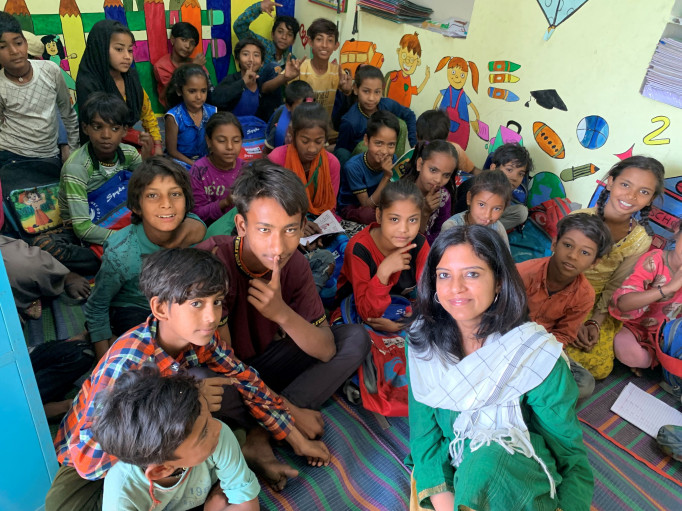
Supporting children with education and identity documents
CHETNA works with the children in communities and helps mainstream them with education by supporting them in the bridging of the learning gap through its community-based learning centres, and its innovative curriculum ‘Srijan’. During my visit, I had the opportunity to visit the Education Resource Centre of CHETNA in Delhi. The beautiful artwork adorning its walls was testimony to the creative potential of the children. At the same time, seeing teenage girls in the class holding their siblings was a reminder of how unpaid care work continues to burden young adolescent girls globally.
CHETNA also facilitates getting identity documents for children by linking them and their parents with the relevant authorities. It was heartening to note that the West district authorities in Delhi have acknowledged that there are out-of-school children in the capital and have pledged to link them with the education system. We attended one such meeting with different stakeholders in the West Delhi district where challenges faced by street-connected children and families were raised. Among other presentations, CHETNA encouraged the participation of street children in the process. Watching the children articulate their problems and demands was a learning for me. One hopes that more such initiatives are taken by the government.
I observed both in Delhi and Jaipur, the zeal in children and communities to keep pushing forward and finding joy in everyday life despite their difficult circumstances. Meeting some first-generation learners in the community, the power of their agency and resilience was inspirational. I came back to the UK with the thought that not all is lost in the homeland and that there is hope at the end of the tunnel."
